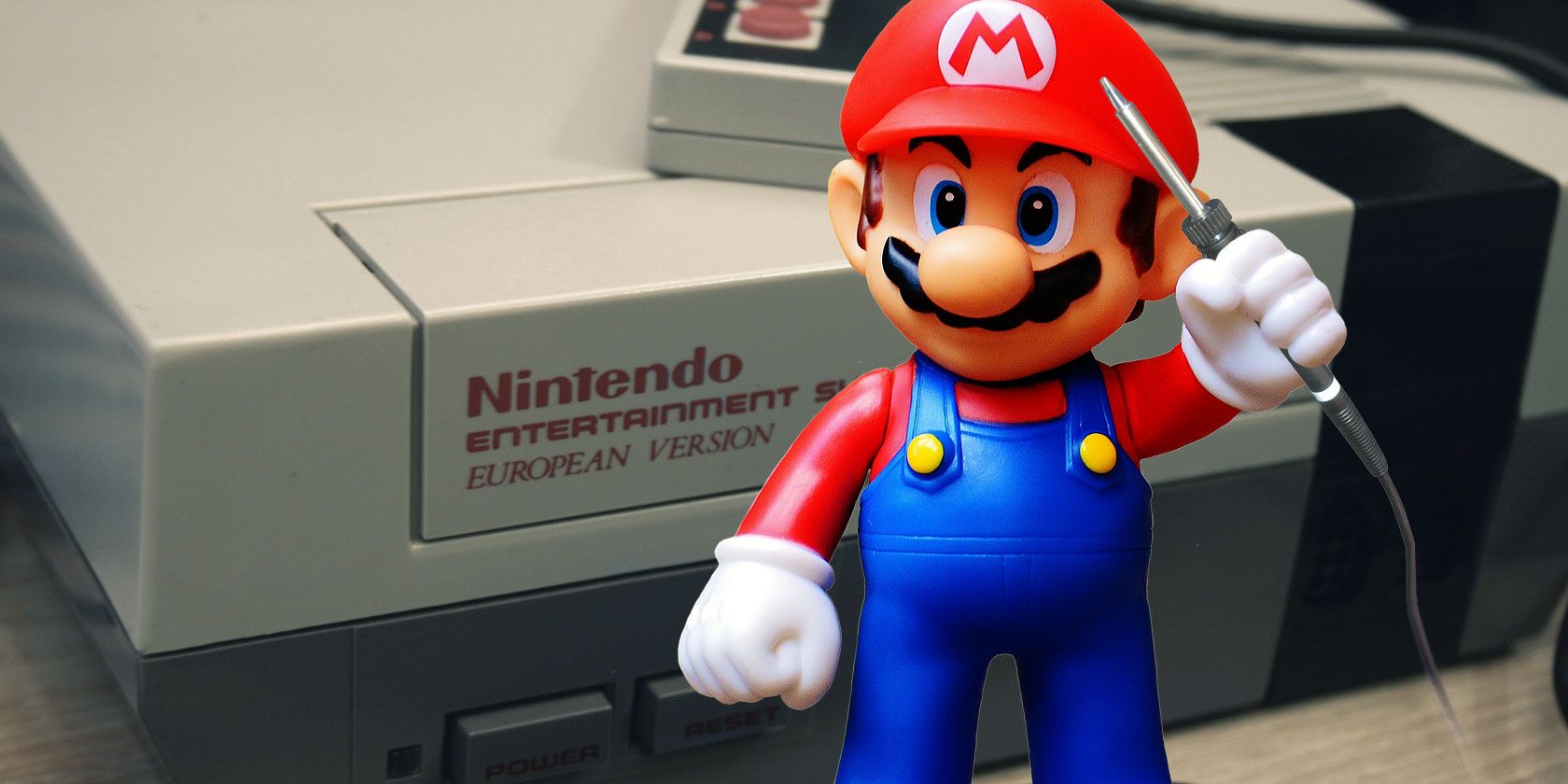
Whether you’re a veteran gamer, or simply love Nintendo hardware, there’s a good chance you’ve got some old bits and pieces knocking around. You could give those old consoles away… or you could hack them.
Here are five ways you can hack old Nintendo hardware into something new and useful.
1. Wii Homebrew
We’ll start with the easiest option: turning an old Nintendo Wii into a media center, capable of running media files on your network, retro games, and even DVDs.
While early hacks for this required some messing around, latterly the LetterBomb utility made things far simpler. By applying this hack, you get access to the Wii Homebrew Channel, where a vast library of free software can be found. Most of this is games, either home-made, or ported from other platforms (such as Doom, for instance).
All you need to get this hack working—and turn your Nintendo Wii into a system that meets its full potential—is a suitable SD card.
Check out our full guide to hacking your Nintendo Wii. Note that this will void the device warranty, which shouldn’t be a problem because most Wii warranties ran out years ago.
2. Wiimote
It’s not just the Nintendo Wii console you can hack. The groundbreaking Wiimote can also be reused/misused. Even if you don’t have a Wii, you can pick up these old controllers (and, preferably, the sensor) for pennies on eBay, thrift stores, yard sales, etc.
But how can you reuse a Nintendo Wiimote?
We’ve previously listed several Wiimote hacks, which include pairing one with an Arduino to steer a radio controlled car (our Arduino starter guide should help), using a Wiimote as a PC controller, as an interactive whiteboard, for finger tracking, and even desktop VR.
Note that not only does the Wiimote have an infrared transmitter and receiver, it is also Bluetooth compatible. Having the nunchuck peripheral will make a few of these Wiimote hacks (and others) easier to complete.
3. Wii Fit Board
One of the most popular peripherals shipped with early Nintendo Wiis was the Wii Balance Board. This device uses Bluetooth radio and has four pressure sensors which are designed to measure the user’s center of balance. Most commonly, the device was used with the Wii Fit game, and is capable of measuring body position (when paired with a WiiMote) and weight.
Despite support for over 150 games, the chances are that your Wii Fit Board is stashed under the bed. So, how can you hack it?
Option 1: Check Your Wii8 (Weight)
The first option is to reuse the Wii Balance Board in the manner it was intended, as a set of scales. Thanks to four AA batteries, the board (which again you can pick up for just a few dollars) should run for 60 hours. You should get quite a bit of use out of it!
Developed by Stavros Korokithakis, the DIY internet-enabled bathroom scale runs on Ubuntu, and can record your weight. It uses the software in this Github repository.
Option 2: How Many Beers?
Alternatively, you might pair a Raspberry Pi with the Wii Balance Board and use it to tell you how many beers are left in your fridge.
Admittedly, this is probably not in the spirit of the device’s initial use, but hey, it could be useful during the summer months. Follow the video above from YouTube channel John’s DIY Playground for the full tutorial.
4. Nintendo SNES Classic Mini (More Games)
Admittedly not an original Nintendo SNES console, the SNES Classic Mini is designed specifically for fans of retro gaming. Whether you owned one the first time around or you have a love of old games, these devices ship with only a limited selection of games.
But what if you wanted to add some of your favorites?
The answer is covered in this video, which explains how to use the Haxchi2 hack (available from GitHub) to import your ROM files into the SNES Classic Mini. Compatible ROMs are listed in this spreadsheet.
Remember to stay on the right side of the law, and only use ROM files for games that you already own.
5. Lego Dimensions Toy Pad (Wii U)
Admittedly not specifically Nintendo-built, the Lego Dimensions Toy Pad can be connected to a Nintendo Wii U. When used with the corresponding game, NFC tags on Lego figures (and other NFC-enabled toys) trigger LEDs (which also depend on in-game events). This pad is basically a USB device with a triple NFC reader and some LEDs built in, and bits of Lego molded to the case.
The Toy Pad can be used in various different ways. Here it is connected to a Lego Mindstorms EV3 computer:
Further details on this particular approach can be found at the EV3Dev website. This site is dedicated to exploring the EV3 computer, so you’re likely to find a lot of interest if you’re a big Lego fan.
Meanwhile, if you don’t own an EV3 computer, other options for hacking the Lego Dimensions Toy Pad exist. For instance, the base color changer app runs on Windows and lets you adjust the colors displayed by the LEDs.
Start Hacking Your Nintendo Hardware!
If you’re short of a project, and have some old gear you want to reuse, then old Nintendo hardware is a good place to start. You could soon end up with a speak-your-weight fridge, or an NFC-triggered LED notification system…
The possibilities are endless. If you’re not sure how to start with DIY, however, try these easy DIY activities and projects to ease you in.
Read the full article: 5 Ways to DIY Hack Your Old Nintendo Devices Into Something New
from MakeUseOf https://ift.tt/2zt64vR
via IFTTT
No comments:
Post a Comment